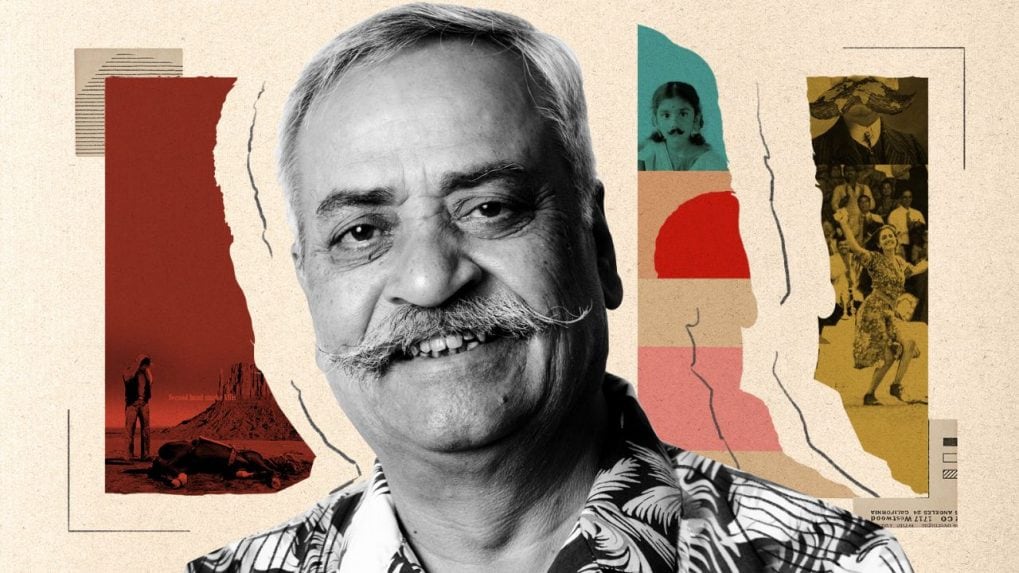How it Works
WPP, Havas, Omnicom: Are advertising’s biggest holdcos recasting agencies as AI Operating Systems?

Bharat Puri still remembers the phone call that would change Indian advertising. It was the early 1980s, and a young Hindi copy chief named Piyush Pandey had just reimagined a simple English tagline for Asian Paints. “‘Celebrate with Asian Paints’ became ‘Har khushi mein rang laaye Asian Paints,’” Puri recalled. “Before I even got home, he had called to say, ‘Partner, I’ve cracked it.’ That was Piyush — full of instinct, creativity, and heart.”
Pandey, the longtime creative head of Ogilvy India and one of the most influential figures in Indian advertising, passed away on October 23, 2025. He was 70.
In a conversation with Storyboard18's editor Delshad Irani, Puri — now Senior Advisor and Director at Pidilite Industries — paid tribute to his four-decade-long creative partnership with Pandey, one that began when both were just starting out. “Our partnership started close to 40 years ago. I was a young, inexperienced, wet-behind-the-ears product manager at Asian Paints. The agency brought in a young Hindi copy chief — that was Piyush. From the very first conversation, I knew he was different,” Puri said.
What followed was one of the most enduring collaborations in Indian advertising — a partnership that would produce campaigns that entered the nation’s collective memory. From the humor-laced Fevicol ads to Cadbury’s tender “Kuch Khaas Hai” and Asian Paints’ festival-themed films, Pandey’s work celebrated Indian emotion, wit, and warmth in a way few others managed.
“He understood what the common man felt and thought,” Puri said. “He could take an ordinary situation, add humour, and make the viewer say, ‘This happens to me.’”
That ability, Puri recalled, came from Pandey’s deep connection to his roots. “He once took me to Jaipur to show me his home and made me try the famous kachoris. He said, ‘If you’re in Jaipur, you must have this — this is the taste of Jaipur.’ He never lost that connection, and he was never apologetic about it,” Puri said.
Pandey’s approach to advertising was intensely personal. He treated brands like relationships — something to be nurtured, not just managed. “Piyush truly lived the brands he worked on,” Puri said. “If your phone rang at 7 a.m., it was Piyush Pandey with a new idea. I’ve approved ads on the phone because his conviction was so infectious.”
That conviction often translated into moments of spontaneous brilliance. “We lost to Sri Lanka, and by morning, Piyush had shot a new version of the Asian Paints ad — Unka Wala Blue, with the line ‘Well played, Sri Lanka.’ That was his brilliance — always relevant, always human,” Puri said.
For all his creative power, Pandey was known to his colleagues and friends as a man of immense warmth. “He was a very emotional person. I remember during my farewell from Asian Paints, we both sat crying together. When you can share vulnerability like that, it shows real confidence in who you are,” Puri said.
Pandey joined Ogilvy India in 1982 and went on to reshape the country’s advertising landscape. His campaigns — for Fevicol, Vodafone, Cadbury, Asian Paints and many others — became markers of India’s social and cultural evolution through the decades.
“His lesson for all marketers was simple,” Puri said. “Never lose connection with your roots. Speak the language of your people. That’s what made Piyush timeless.”
From purpose-driven work and narrative-rich brand films to AI-enabled ideas and creator-led collaborations, the awards reflect the full spectrum of modern creativity.
Read MorePraveen Someshwar, Managing Director and CEO of Diageo India, joins the Grand Jury of the Storyboard18 Awards for Creativity, highlighting the awards’ focus on work that blends cultural relevance with strategic and commercial impact.